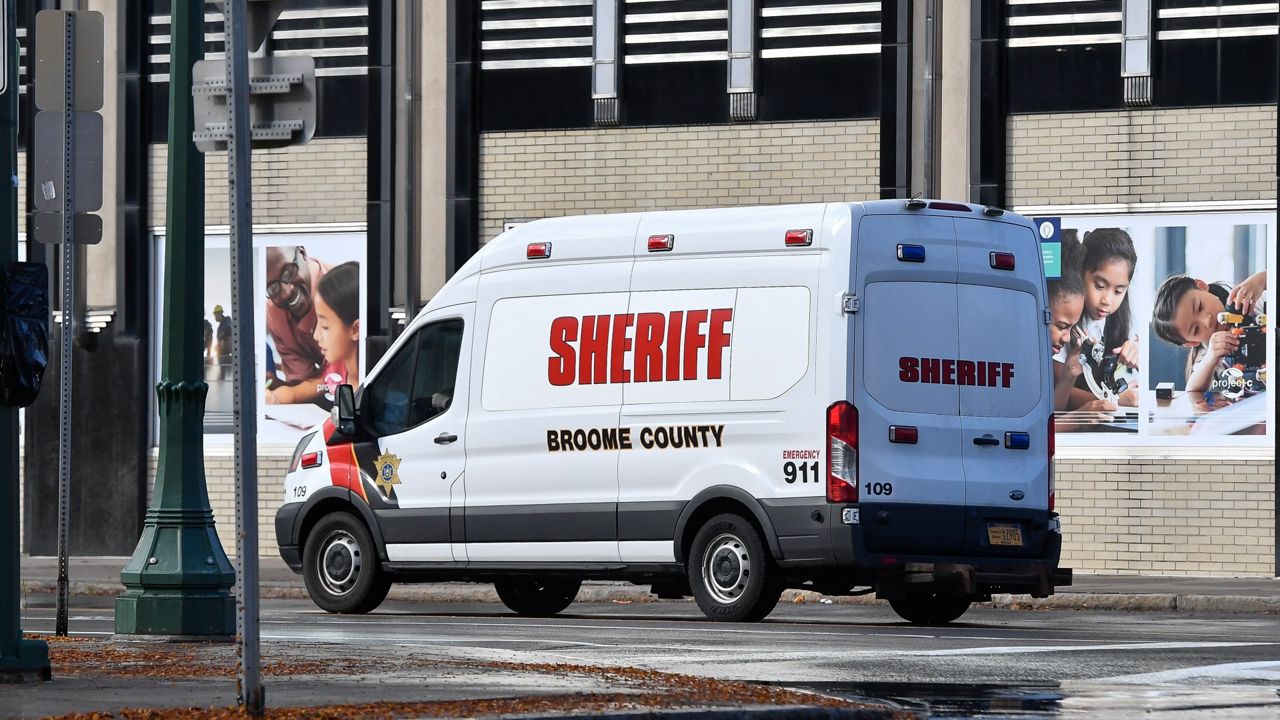New York Assembly Republican Leader Will Barclay (R,C-Pulaski) and the Assembly Republican Conference introduced a bill Friday that would make certain criminal offenses bail-eligible, in response in part to recent threats made against Jewish students at Cornell University.
In part, the bill looks to ensure that threats of mass harm can be treated as hate crimes, while also giving judges more discretion when making pre-trial decisions.
They insist that New York’s bail reform laws could have allowed Patrick Dai, the Cornell student charged with posting online threats toward Jewish people, to be released from jail on his own recognizance, arguing this calls for urgent change to New York's bail laws.
“Democrats passed their bail reform disaster in 2019. Three times since, they’ve made inconsequential changes claiming the problems were fixed. The terrifying incident at Cornell University shows they haven’t fixed anything,” said Leader Barclay.
Gov. Kathy Hochul, when pressed Thursday, noted that the charges in that case were federal, but expressed that she was open to looking into changes when it comes to cases of terroristic threats.
“I’m willing to look at that,” she said, while adding that state charges could be pursued if necessary. “I’m willing to look at all of the state charges in the event that a decision is made not to continue, whatever happens there.”
At the same event — a Leadership Conference hosted by the New York State Association of Chiefs of Police and New York State Sheriff’s Association — Hochul touted changes made in this year’s budget to address issues with the 2019 law, including expanding leeway for judges in cases of hate crimes.
“I had to fight hard — shockingly hard, to have hate crimes treated as bail eligible,” she said. “I think if judges continue to look closely at what we did, they have more power.”
Cornell University made national headlines when Dai left threatening comments on a website about fraternities and sororities not affiliated with Cornell, prompting police to increase security for Jewish students. Noting this, Barclay doubled down on the need for further changes.
“If the alleged racist perpetrator at Cornell was charged under New York law, he could have been released on his own recognizance,” he said. “Our bill will close a loophole that should have never been opened. Threats of mass harm to any group of people warrant a more serious consequence, not merely a slap on the wrist. It’s time the punishment matches the crime.”
According to Barclay, the bill would create the following measures:
- allow the crimes of Aggravated Threat of Mass Harm and Making a Threat of Mass Harm to be charged as Hate Crimes
- add the following crimes to the list of qualifying offenses making them eligible for bail whether or not they are charged as Hate Crimes: Aggravated Threat of Mass Harm, Making a Threat of Mass Harm and Aggravated Harassment in the First Degree;
- add the following crimes to the list of qualifying offenses when charged as hate crimes: Aggravated Harassment in the Second Degree, Harassment in the Second Degree and menacing in the First, Second and Third Degree;
- increase the penalty for the crime of Making a Threat of Mass Harm from a class B to a class A misdemeanor, punishable by up to 364 days in jail and a maximum fine in the amount of $1,000;
- increase the penalty for the crime of Aggravated Threat of Mass Harm from a class A misdemeanor to a class E felony, punishable by up to four years imprisonment;
- clarify that the class D violent felony crime of Making a Terroristic Threat is a qualifying offense eligible for bail/remand


